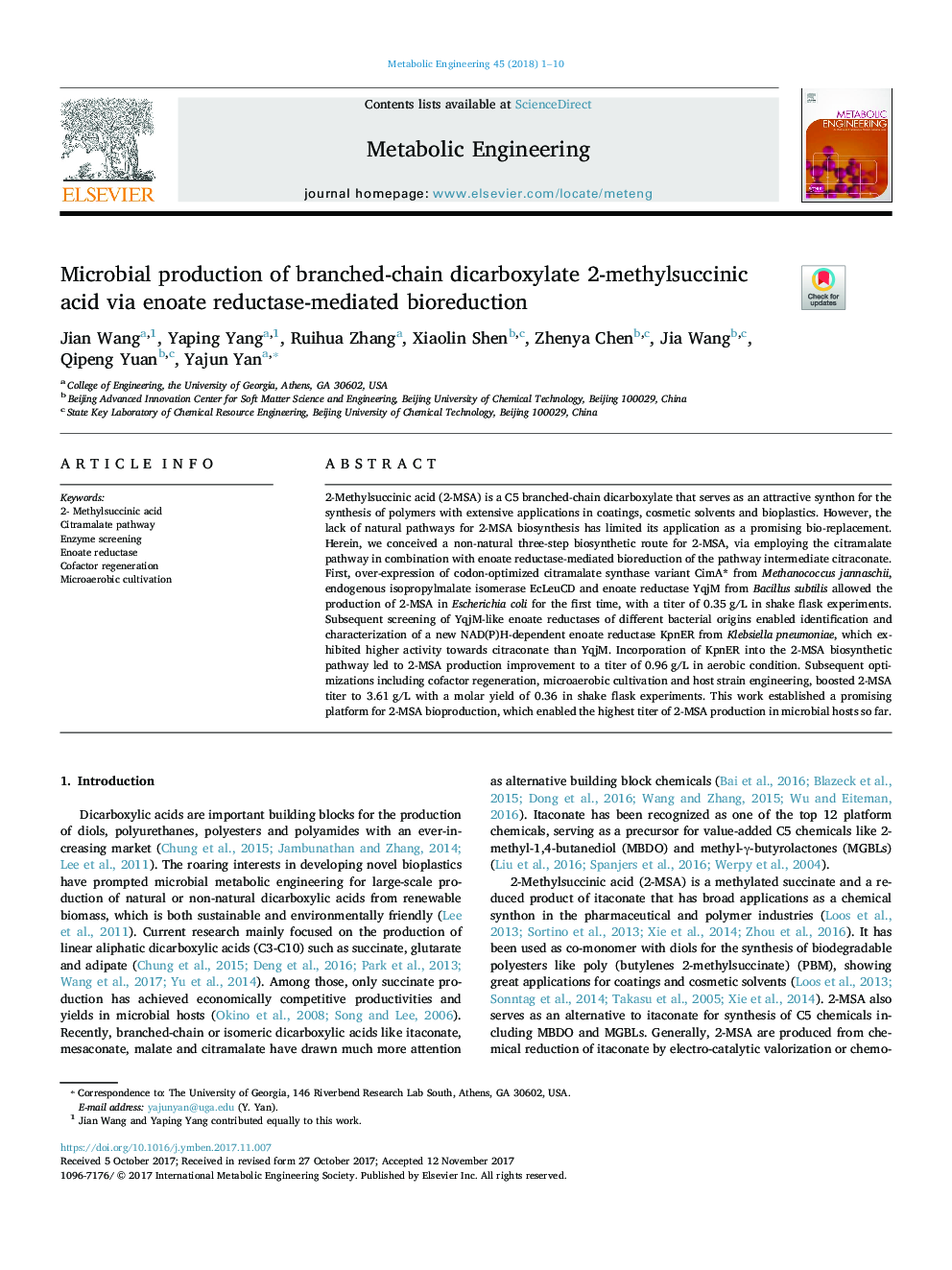| Article ID | Journal | Published Year | Pages | File Type |
|---|---|---|---|---|
| 6494120 | Metabolic Engineering | 2018 | 10 Pages |
Abstract
2-Methylsuccinic acid (2-MSA) is a C5 branched-chain dicarboxylate that serves as an attractive synthon for the synthesis of polymers with extensive applications in coatings, cosmetic solvents and bioplastics. However, the lack of natural pathways for 2-MSA biosynthesis has limited its application as a promising bio-replacement. Herein, we conceived a non-natural three-step biosynthetic route for 2-MSA, via employing the citramalate pathway in combination with enoate reductase-mediated bioreduction of the pathway intermediate citraconate. First, over-expression of codon-optimized citramalate synthase variant CimA* from Methanococcus jannaschii, endogenous isopropylmalate isomerase EcLeuCD and enoate reductase YqjM from Bacillus subtilis allowed the production of 2-MSA in Escherichia coli for the first time, with a titer of 0.35Â g/L in shake flask experiments. Subsequent screening of YqjM-like enoate reductases of different bacterial origins enabled identification and characterization of a new NAD(P)H-dependent enoate reductase KpnER from Klebsiella pneumoniae, which exhibited higher activity towards citraconate than YqjM. Incorporation of KpnER into the 2-MSA biosynthetic pathway led to 2-MSA production improvement to a titer of 0.96Â g/L in aerobic condition. Subsequent optimizations including cofactor regeneration, microaerobic cultivation and host strain engineering, boosted 2-MSA titer to 3.61Â g/L with a molar yield of 0.36 in shake flask experiments. This work established a promising platform for 2-MSA bioproduction, which enabled the highest titer of 2-MSA production in microbial hosts so far.
Related Topics
Physical Sciences and Engineering
Chemical Engineering
Bioengineering
Authors
Jian Wang, Yaping Yang, Ruihua Zhang, Xiaolin Shen, Zhenya Chen, Jia Wang, Qipeng Yuan, Yajun Yan,
